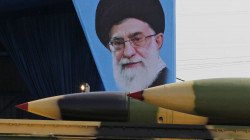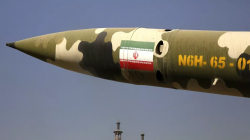Israel moves forward with plans to strike Iran following intelligence leaks

Shafaq News / On Thursday, Israeli Defense Minister Yoav Gallant and Chief of Staff Herzi Halevi approved the plans to attack Iran, indicating that these plans will be presented to Prime Minister Benjamin Netanyahu for ratification later, the Israeli Public Broadcasting Corporation reported.
An intelligence source told The Times that Israel has postponed its retaliatory response to Iran due to the need to change strategies in its plans, explaining that “leaks of the American documents forced Israel to revise plans and develop an alternative strategy. There will be a retaliation, but it has taken longer than it was supposed to take.”
Earlier today, in the Qatari capital Doha, US Secretary of State Anthony Blinken affirmed support for “Israel's right to defend itself”, adding that the US collaborate with Israel to address any further Iranian attacks on Israel. “We’re also continuing to work with our partners in the region to make very clear to Iran that further attacks against Israel will have deeply negative consequences for Iran’s interests,” the US Secretary of State announced.
A leak from a pro-Iran Telegram channel revealed details about Israel's plans to use ballistic missiles against Iran, helping Tehran anticipate attack patterns. The classified documents, dated October 15 and 16 and confirmed by US officials, outline Israeli military preparations, including air force deployment exercises and aerial refueling drills.
The Pentagon denied claims that Ariane Tabatabai, Chief of Staff to the Assistant Secretary of Defense for Special Operations of Iranian descent, was behind the leak, stating she is not under investigation and that the department is cooperating with the ongoing inquiry. The documents detail the management of air-launched ballistic missiles, including the "Golden Horizon" and "Rocks" missiles, which are designed for long-range strikes against well-protected targets.
The documents were compiled by the National Geospatial-Intelligence Agency (NGA) and the National Security Agency (NSA) and detailed Israeli military movements, including missile exercises and air force maneuvers in preparation for a potential strike on Iran. The absence of accompanying satellite images in the leaked files has led to speculation about how the information was obtained and disseminated.
An Iranian military source had recently warned that if any Israeli actions against Iran included the possibility of targeting military sites, the Iranian response would be certain and exceed Israeli estimates by stages.
Earlier this month, Iran fired around 200 ballistic missiles at Israel in retaliation for the assassinations of senior figures in Tehran and Beirut. Ismail Haniyeh, leader of the Palestinian Hamas movement, Hezbollah leader Hassan Nasrallah, and an Iranian Revolutionary Guard general.
Israel recently acknowledged that Iranian missiles struck military targets, causing over $50 million in material damage, though it did not report any casualties.
Israeli Energy Minister Eli Cohen further warned that "no military facility, infrastructure, or individual is immune from our attack," adding, "All options are on the table, including striking Iran's nuclear facilities."





